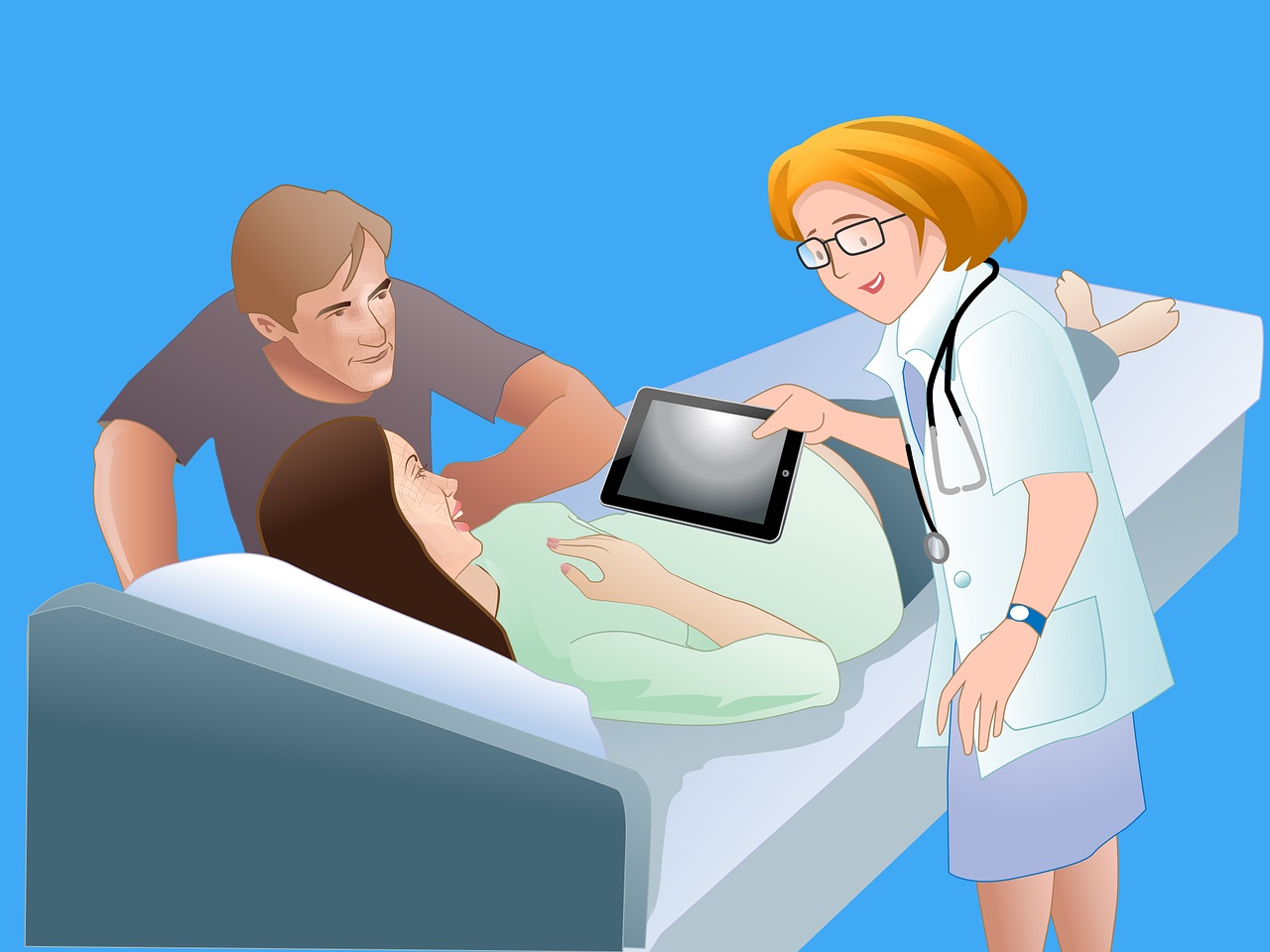
Every year around the beginning of July, I see some of the most haunted radiology resident faces, right around 10:00 pm, just after the attending evening shift ends and the resident night shift begins. It is almost always a second-year radiology resident who happens to be starting their first night of call. What if I miss something important? What if I say something stupid? Will I be able to handle the intensity? Will I fall asleep? And most importantly, will I kill someone?
The resident only unlocks the answers to these burning questions on the first night. Only after this event does the resident and the program director know whether or not they can handle the burdens of a radiologist. Everything in the first year leads to this point: the precall quiz, the intense reading, the conferences, and the studying. It’s crunch time.
Just before the first night of the dreaded call, my famous last words are: you begin the night as a kid, and you will end the night as an adult. Why do I say that? Because I think the truth lies embedded in that statement. You can never become a full-fledged radiologist until you are responsible for independently making patient decisions. It’s like all those ancient traditions in all religions/cultures, like hunting that first wild boar, the confirmation, the bar mitzvah, etc. The residency now allows you to function as an independent, freethinking human being who can make decisions on your own. Until then, you are merely an observer, not an active participant.
Since taking night coverage is such an intense and essential experience, you must follow certain tenets to make it valuable and safe. I will enumerate eight simple golden rules of call I wish I had known before beginning those fated first nights to come. I urge that you follow all of them to enrich your education safely. Do not stir the wrath of your fellow staff members and program directors in the morning by breaching these rules!
Look at every film with these primary thoughts- what will kill the patient, and what is common?
I can guarantee that if you look at every film with these thoughts at the forefront of your brain and have done the prerequisite work to get to call, you will not severely harm any of your patients. When you look at a chest film, always think pneumothorax. If you see a female pelvic ultrasound, always think ruptured ectopic. When you look at a CT scan in a patient with right lower quadrant pain, always think of acute appendicitis. And so forth. Thinking about badness will prevent undiscovered horribleness in the morning.
Likewise, when you look at films, always think about the most common diagnoses first, and you will be right much more often than wrong. For instance: Opacity on a chest film- pneumonia, not Hampton’s hump. Restricted diffusion on a brain MRI- infarct, not ependymoma. Abnormality on a GI bleeding scan, think primary GI bleed, not Meckel’s diverticulum with bleeding gastric remnant. I can guarantee your attending faculty will look at you funny if you come up with too many zebras!
Always, always, always maintain your search pattern in every study.
In the radiology world, one of the main ways to miss something is not to look for it. Sometimes in the middle of the night, the pressure will seem impossible, and you must deliver an answer at that second. Perhaps, a team of 4 angry surgeons comes down and asks, “What is going on with the film?” and needs to know now! Or, an inpatient resident shoves a chest film in front of your face and says, “What’s going on here?” Maybe, the emergency medicine doctor calls incessantly to get a read on that CT chest for dissection.
In each of these cases, I don’t care how emergent and immediate they need the answer, always step back and go through your search pattern. Everyone makes this cardinal error at one time or another. Avoid it! Step back and say give me a moment. Go through each organ or region rigorously. You will look much less stupid than blurting a diagnosis/finding out only later to realize it was wrong because you haven’t thoroughly analyzed the study. One of the worst feelings is finding the doctor who just left your department with the wrong answer, who is getting ready to begin an unnecessary surgery on a patient, or a doctor who will discharge a patient that needs to stay in the hospital!!
If there is no harm to the patient, it is easier to do the study than to fight it.
Most residents take a while to learn this one piece of sage advice. At nighttime, you will have limited time for everything. Interruptions will pull you in fourteen different directions at once. You will receive calls from the emergency department, the floors, the surgeons, etc. And often, these events tend to happen all at once. So, I urge you that if a study is reasonable, do it.
You will spend more time and energy preventing a study from getting done than just completing it. Of course, if it significantly harms a patient, then obviously avoid it. But that is the exception rather than the rule. That fluoroscopy study to rule out a foreign body that you try to block after the resident ordered it: I can guarantee it will come back hours later when you are either exhausted or have lots of things going on at once. So, just do the study!!!
Don’t let your temper get the best of you. You will hear about it in the morning!
Every resident encounters a curt gynecologist, a rude surgeon, a loud, demanding resident, and so on at some point. You are likely going to be grumpy and tired as well. It may seem like a good idea to talk back to that person similarly rudely and unprofessionally. Or, you may want to take a swing at one of these annoying chaps. But don’t do it. One of the most common complaints at nighttime is a letter written by an attending or a resident colleague saying this radiology resident was unprofessional and handled the situation poorly under pressure. This complaint will come regardless of whether the radiology resident is right or wrong. And often, it will stay in the resident’s file/record. Don’t let that be you!!!
Residents best handle resident matters. Attending matters are best handled by attendings.
At nighttime, many times, a clinician may need an attending radiologist. So, make sure you don’t go in over your head. Call your attending when necessary. The worst thing you can do in the morning is to perform a procedure that your attending should have done or make a phone call that really should have been handled by your attending, only to find out that the wrong thing happened. It will become the talk of the town in the department, not in a good way. An attending should always read a brain scan because of litigation issues. A faculty radiologist should always be present for an intussusception reduction. And so on. Don’t go over your head!
On the other hand, if you have a resident issue at nighttime, try to handle it yourself. If the Emergency Department asks you whether to give the contrast, make that decision. If a resident comes down to ask a question, answer it. You will only learn how to make the more minor decisions by playing the role of a radiology resident.
Ask for help if you can’t handle something at nighttime.
Sometimes, the job may be too much to bear for one person. (A disaster happened with every patient getting a total body CT scan) Perhaps, it is a question that an expert needs to answer. (A subtle abnormality on an emergent Neuro CTA) And, other times, administrative issues that only your chair or program director can handle. (The MRI broke – should we recommend sending patients to another hospital?) If such problems arise at nighttime, make sure to call the appropriate channels going from lowest to highest in command. If it is a patient question that you are not sure about, ask your chief resident. Then, if they can’t answer the question, you may want to ask the assigned attending on-call. And, up the chain, it goes.
If you decide to handle everything yourself and it is inappropriate for your level, you can almost be sure that repercussions will occur in the morning. So please, ask for help when it is needed and appropriate!!
Always answer your beeper/phone/pager.
Occasionally, we hear about a resident sleeping and not answering their pager at nighttime. Unfortunately, those residents will often get written up in the morning for lack of timely dictation. So, jack up the sound on your beeper/phone/pager. And, take all calls!!!
Look at the films. Don’t rely on the ER or Nighthawk reads.
Being on call is the time to remove the umbilical cord and develop independence from your mentors/attendings. So, do not repeat a dictation or reading that is already present. You should do everything de novo/from scratch, although you should look at their reads afterward. It also seems silly when the resident’s dictation matches the Nighthawk dictation verbatim and hints that the resident may not have looked at the films. When I am on in the morning, I appreciate the extra set of eyes that a resident used to check the cases even though others have looked at the study. And, it is not infrequent that our residents catch essential findings that the nighthawk didn’t notice. So please, do your independent reads/dictations!!!
Summary statement
Call is a challenging but integral part of raising a radiology resident right. It is a time of trials and tribulations. You can and will make it through this harrowing trial if you follow the golden rules. Good luck!
——————————————————-
Need some help with what you need to learn before taking call? Check out the following books on Amazon!
Emergency Radiology Case Review Series
Core Radiology
———————————————————-
This article is featured on auntminnie.com!!! Click here for the Aunt Minnie version of the article.








































